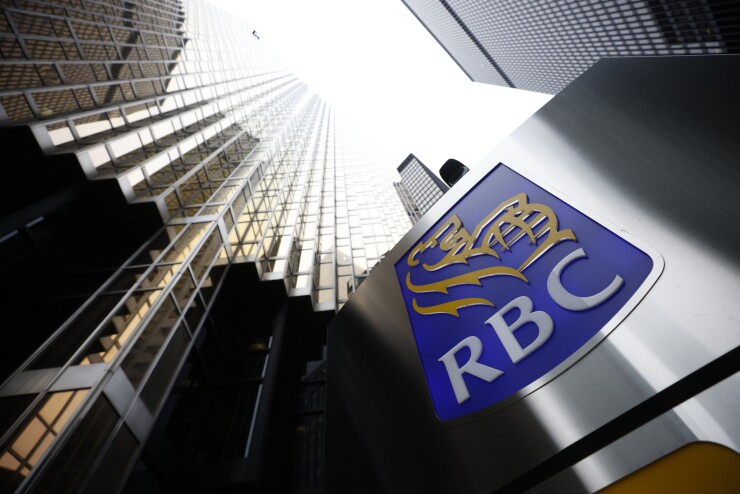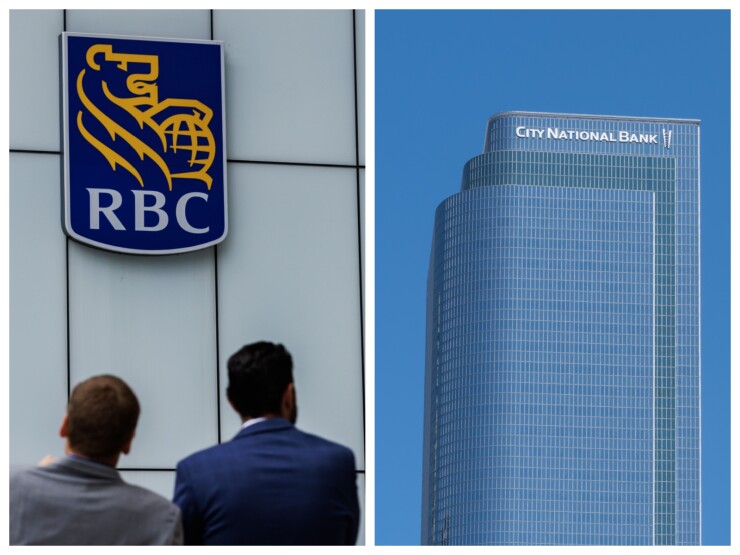
UPDATE: This article includes quotes from RBC executives as well as analyst commentary and additional details from the company's earnings report.
Royal Bank of Canada's third-quarter earnings were powered by a better-than-expected credit performance, strength in its core businesses and the addition of a unit it acquired from HSBC earlier this year.
The Toronto-based bank reported net income of 4.49 billion Canadian dollars, or CA$3.09 a share, in the three months ended July 31, up from CA$3.86 billion, or CA$2.73 a share, in the year-ago period. Analysts polled by S&P Capital IQ were expecting CA$2.80 a share.
Adjusted earnings were CA$3.26 a share, beating analysts' average expectations of CA$2.95 a share.
Most of RBC's business segments posted higher net income, with the exceptions of insurance, where earnings fell 21% from a year ago due to a decline in investment results, and corporate support, which posted a loss due to the CA$125 million after-tax impact of the HSBC Canada acquisition early this year.
"Momentum across all of our customer franchises is very strong, from retail and commercial to capital markets, to U.S. wealth, Canadian wealth," RBC Chief Executive Dave McKay told analysts during a conference call Wednesday.
Provisions for credit losses climbed 7% from a year ago to CA$659 million, a smaller rise than either
John Aiken, an analyst at Jefferies, said RBC's provisions came in well below expectations, which contributed to what he characterized as a "standout" performance by the bank last quarter.
In a note to clients, Aiken said RBC benefited from the inclusion of HSBC Canada's results for the first full quarter. The recently acquired HSBC unit increased RBC's quarterly net income by CA$239 million.
Neil McLaughlin, RBC's group head of personal and commercial banking, told analysts, "We've been really pleased with the fundamentals of the business."
Revenue rose about 13% to CA$14.63 billion, above the analysts' average forecast of CA$14.37 billion.
"Combined with our recently announced changes to the executive leadership team and business segments, RBC is better positioned than ever to accelerate our next phase of growth," President and CEO Dave McKay said in a press release.
In July,
RBC has also been trying to engineer a turnaround of its Los Angeles-based banking subsidiary, City National Bank,

During the quarter that ended July 31, City National swung to net income of 52 billion U.S. dollars after recording a $38 million loss in the same period last year. The unit's earnings in the most recent quarter were hurt by $38 million of after-tax losses on noncore investments.
RBC executives
Kevin Wack contributed to this article.





